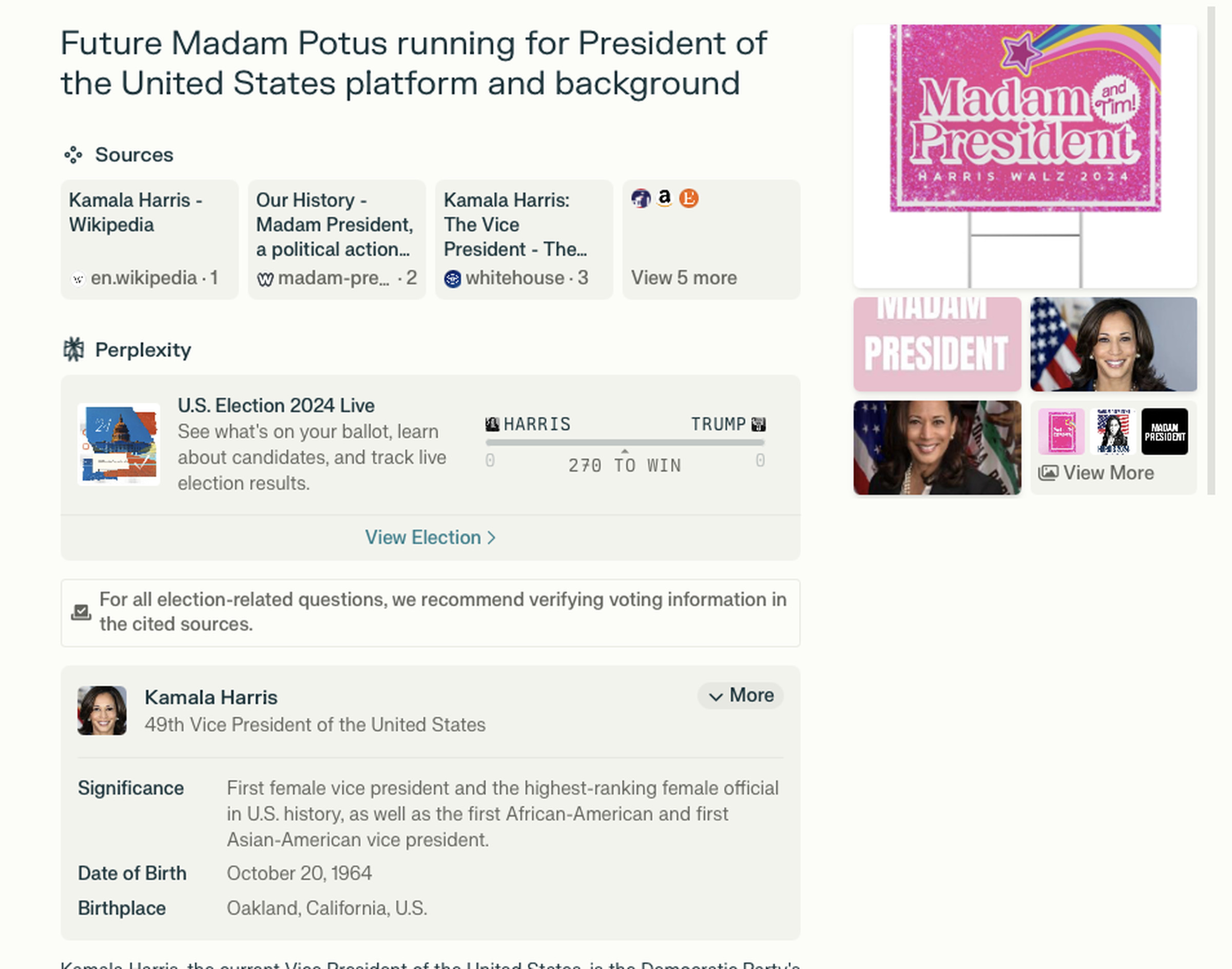Days before the US Presidential election, Perplexity is dedicating its AI search engine to providing voter answers.
Share this story

AI search company Perplexity is putting to the test whether it’s a good idea to use AI to serve crucial voting information with a new Election Information Hub it announced on Friday. The hub offers things like AI-generated answers to voting questions and summaries of candidates, and on November 5th, Election Day, the company says it will track vote counts live, using data from The Associated Press.
Perplexity says its voter information, which includes polling requirements, locations, and times, is based on data from Democracy Works. (The same group powers similar features from Google). And that its election-related answers come from “a curated set of the most trustworthy and informative sources.”
Perplexity spokesperson Sara Plotnick confirmed in an email to The Verge that both AP and Democracy Works are official partners for the hub. Plotnick elaborated on Perplexity’s sources:
We selected domains that are non-partisan and fact-checked, including Ballotpedia and news organizations. We’re actively monitoring our systems to ensure that we continue to prioritize these sources when answering election-related queries.
The hub serves up details about what’s on the ballot for whatever location you enter (for instance, an address or city). There are also tabs for monitoring the elections for the President, US Senate, and US House as they come in starting Tuesday, with per-state breakdowns showing the percentage of votes counted and who’s leading.


The AI summaries when I clicked on candidates had some errors, like failing to mention that Robert F. Kennedy, who’s on the ballot where I live, had dropped out of the race. It also listed a “Future Madam Potus” candidate that, when clicked, led me to the above summary of Vice President Kamala Harris’ candidacy, except with some meme pictures that aren’t in her normal summary.
Plotnick said the company is looking into why the summary didn’t mention that Kennedy had dropped out. “Depending on your location, sometimes write-in candidates will appear,” Plotnick added by way of explaining why Future Madam Potus’ listing may have appeared. (It doesn’t explain why it summarized Harris, but Future Madam Potus is indeed running as a write-in candidate, according to Ballotpedia.)
The errors illustrate the challenge of using accuracy-challenged generative AI for such a high-stakes use case, and why other AI companies have shied away from doing it. ChatGPT, Meta AI, and Google Gemini each deflect voter information questions to other resources like canivote.org or Google Search. Microsoft’s Copilot simply refused to answer when I tried.









